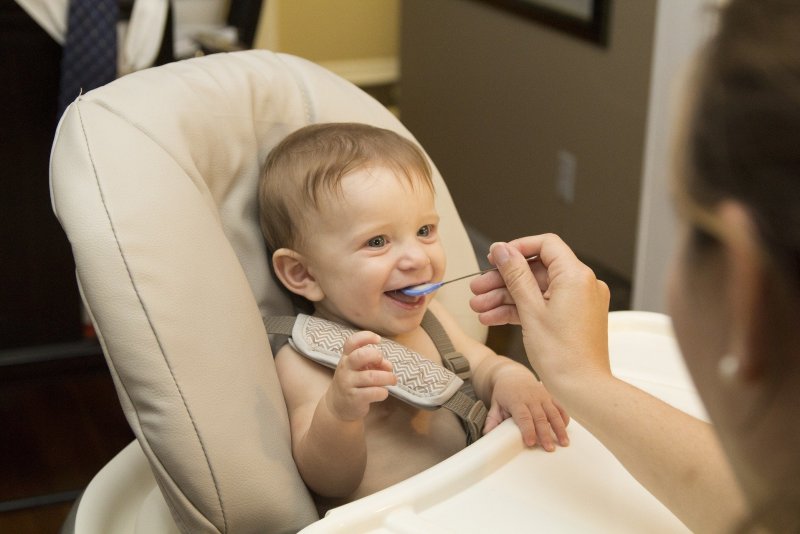Parents throughout the nation will be able to learn the amounts of potentially dangerous heavy metals in baby foods thanks to a new California law requiring regular testing and reporting on labels for baby foods sold there. File Photo by
yalehealth from
PixabayJan. 4 (UPI) — Parents can learn the amounts of lead, mercury and other toxic heavy metals contained in baby food prior to purchase under a new California law with national impact.
The California law requires baby food makers to have an accredited lab test their respective baby food products at least once every month to test for lead, mercury, cadmium and arsenic, CNN reported.
The law took effect on Wednesday and requires baby food manufacturers to list the results on their websites for the general public to access.
Parents and others can access the results while shopping by using smartphones to scan QR codes on the respective foods for babies and toddlers.
Although the law only applies to California, some of the nation’s largest baby food manufacturers said consumers throughout the nation will have the ability to scan the QR codes because the same labels are used on all products no matter where they are sold.
The baby food makers use the same labels on all of their products sold throughout the nation.
The California law was inspired by a 2021 congressional report showing high levels of heavy metals in foods made for babies and toddlers.
Baby foods were found to contain up to 177 times the amount of lead allowed by federal regulators, the Los Angeles Times reported.
Results also showed baby foods contained up to 91 times the level of arsenic, 69 times the level of cadmium and five times the level of mercury allowed by federal law.
Packaged baby foods account for about half of babies’ dietary exposure to lead, according to the U.S. Department of Agriculture.
Infant formula accounts for another 36% of babies’ dietary exposure to lead, but the California law does not require baby formula producers to include information on heavy metals like it does baby food.
The U.S. Food and Drug Administration is determining potential action levels for heavy metals in baby food and infant formula, which might require manufacturers to reduce those amounts or remove products containing excessive levels of the heavy metals.
Heavy metals are naturally occurring and are found in fruits, vegetables and spices – including those grown in gardens.
The manufacturing processes for baby food and infant formula generally do not add additional heavy metals, but monthly monitoring could help prevent accidental exposure to potentially dangerous levels.
Packages of fruit pouches tainted with excessive amounts of lead poisoned many children across the United States in 2023.
